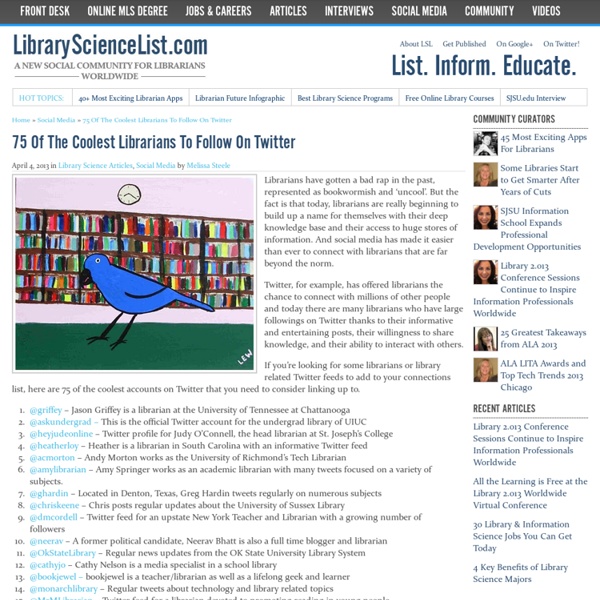75 Of The Coolest Librarians To Follow On Twitter
Librarians have gotten a bad rap in the past, represented as bookwormish and ‘uncool’. But the fact is that today, librarians are really beginning to build up a name for themselves with their deep knowledge base and their access to huge stores of information. And social media has made it easier than ever to connect with librarians that are far beyond the norm. Twitter, for example, has offered librarians the chance to connect with millions of other people and today there are many librarians who have large followings on Twitter thanks to their informative and entertaining posts, their willingness to share knowledge, and their ability to interact with others.
SchoolLibraryJournal (@sljournal) | Twitter...
Amer. Library Assn. (@ALALibrary) | Twitter...
Related:
Related:



